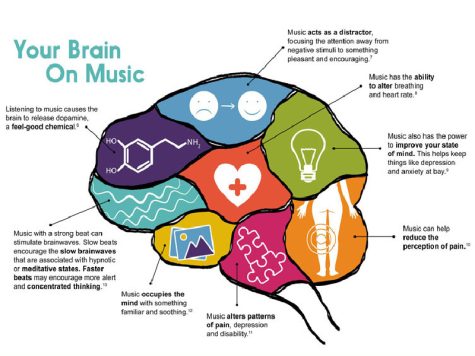How listening to music can alter your mood and behavior
Studies on the effects of various musical genres on behavior and thought.
Every aspect of our existence includes music. Songs are used to structure our spiritual ceremonies, infants learn the alphabet through music, and there is rarely silence in the malls and cafes we frequent for leisure.
But to what extent can music influence our behavior and emotions? According to research, music has a big impact on us . It can affect health, mood, spending, output, and how we view the world.
. It can affect health, mood, spending, output, and how we view the world.
According to some research, it may heighten aggressive thoughts or even promote criminal activity.
A recent UK study looked into the potential connections between rap music known as “drill,” which features menacing lyrics, and attention-seeking violence. That is nothing new, but the rise of social media has made recording and sharing more accessible.
According to the study’s author, Craig Pinkney, a criminologist and lecturer at the University College Birmingham in the UK, these songs’ lyrics are about gang rivalry, and unlike other genres, the listener may rate the performance based on whether he will actually carry out what he says.
The article examines how social media contributes to violence in addition to music. The ease with which many people utilize the internet has allowed gang conflicts to spread online and attract commentary from both supporters and adversarial organizations, which further increases the pressure to respond.
Pinkney says that there are numerous causes for the rise in crime. He says that other factors that affect poverty and deprivation include racism, bad leadership, a lack of corporate investments, a lack of opportunity, and a lack of resources.
Professor of psychology and music at McGill University in Canada, Daniel Levitin notes that it can be challenging to determine whether music can incite violence.
Studies use observational data more often than controlled trials that can account for subjects’ personalities and have very conflicting results. Levitin suggested that listeners who are already inclined to violence might be enticed to it. However, this does not imply that everyone who likes violent music is violent.
“It’s easy to jump to the conclusion that the art caused the person to become violent when you’ve got violent behaviors that imitate something that’s out there in the music or art world,” he continued. But just because something is obvious doesn’t imply it’s true.
Another study found that aggressive thoughts and feelings can be sparked by music, which was reported in the Journal of Personality and Social Psychology in 2003. In five studies involving 75 female and 70 male college students, it was discovered that those exposed to violent music felt more hostile than those exposed to peaceful songs by the same artist and genre.
According to three different measures, the study found that listening to violent songs made people think more aggressively: They interpreted ambiguous words more aggressively, they read aggressive words more quickly than non-aggressive words, and they filled in more of the blanks on study forms with words that were aggressive.
According to the authors, one approach to explain these results is that participants who listened to violent rock songs later interpreted words like “rock” and “stick” in an aggressive manner.
According to the book Music in American Crime Prevention and Punishment by musicologist Lily E. Hirsch, different genres of music have also been employed in efforts to deter crime.
Hirsch described how her native Santa Rosa, California, employed classical music to discourage loitering in her writings. She claimed that in 1996, city officials made the decision to broadcast classical music in order to get young people out of the city’s Old Courthouse Square. Hirsch claims that many teenagers abandoned the neighborhood because they didn’t like the music, which prompted the city to maintain the background music playing.
Laurel Trainor, director of the McMaster Institute for music and the mind and professor of psychology, neurology, and behavior, stated that music may elicit a wide range of feelings, some of which are unfavorable.
She claims that this has both positive and harmful effects because it can “bring people together and fuel these social relationships.” For instance, music has been utilized in conflict from the beginning of written history because it fosters communal cohesion, according to Trainor.
Music has the capacity to affect how we feel. No other species has developed in such a way as humans can give meaning to music and elicit emotional reactions, she continued.
Levitin said that music stimulates the oxytocin and serotonin chemicals, which are in charge of intimacy, trust, and bonding.
Trainor believes that music’s ability to foster both positive and bad social bonds is “part of our biological history.” If we wish to use music in productive ways, we must acknowledge that.
